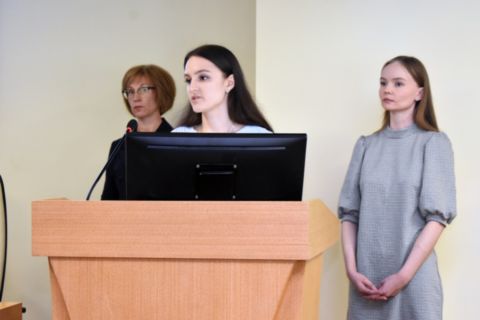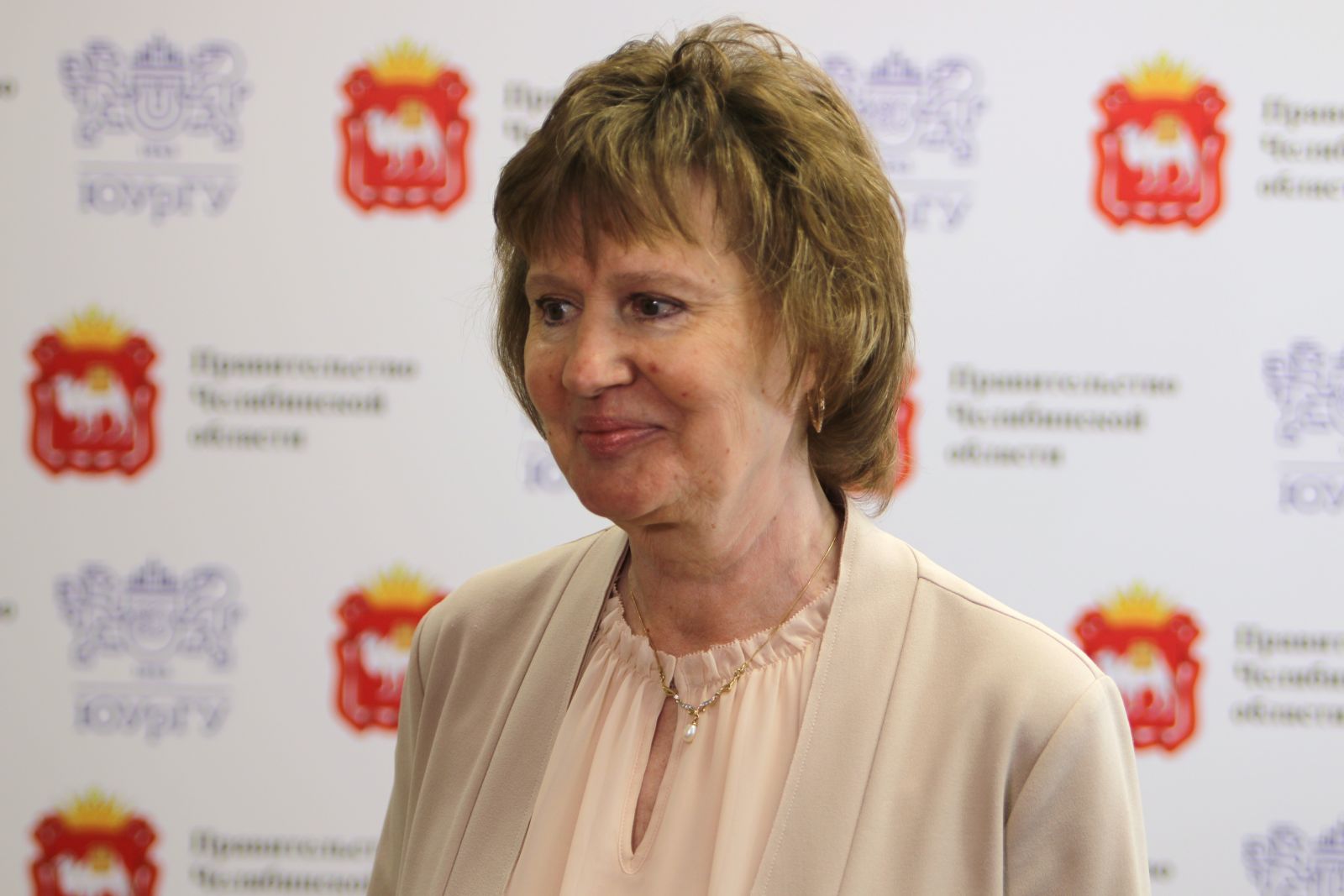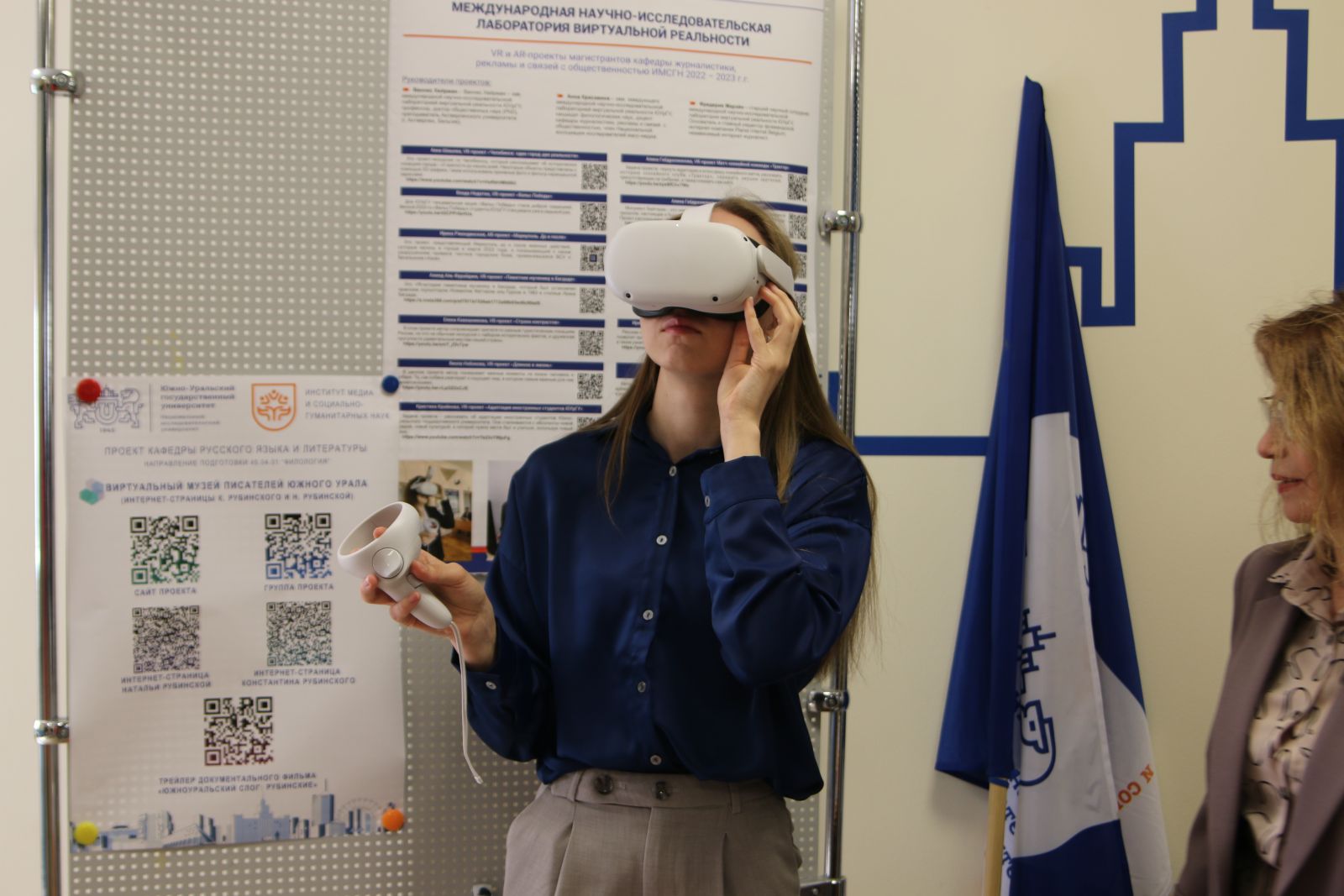On June 23rd, the Project Day conference was held in the conference hall of SUSU’s Sigma building. The best teams from nine of SUSU’s schools and institutes presented the results of projects from the past academic year and defended them before the commission. 445 students took part in the 2022–2023 project-based learning program and 64 projects were implemented.
The reporting conference included 21 presentations on topics ranging from quantum computing and deep machine learning in bioinformatics to an online English language course for scientific publishing.
The second half of the conference featured presentations by the School of Medical Biology; Institute for Sports, Tourism, and Service; Institute for Media, Social Sciences, and Humanities; and Institute of Linguistics and International Communications. The School of Medical Biology presented three projects from different fields: a project offering support to psychologists and social workers; an agro-biotechnological project of obtaining ecoproducts from grain crops; and a model of a relaxation room at an enterprise. The last project was discussed in the context of introducing relaxation rooms at SUSU.
“The main result of project-based learning is that students create a real product for a specific enterprise with their own hands. There are projects for large plants, and there are projects for small enterprises, for example, in the food industry. The team's product will be implemented at an enterprise; the students obtain a patent, which means that they will be employed. Moreover, they will begin their work with specific skills and ideas. I think this is the most important thing in project-based learning,” said Irina Savelieva, Vice-Rector for Academic Affairs. “Many of the presented projects are the result of interdisciplinary and interindustry interaction. The main criterion for selecting the best projects was the effective practical application of the result.”
The Institute for Sports, Tourism, and Service presented three projects: Digital Technologies for Assessing the Physical Performance of Athletes; Smart Enterprise in Food Services; and Innovative Development of Baby Food Based on Buckwheat Groats. The Institute of Linguistics and International Communications presented two projects: Linguistic Support for Complex Engineering Projects, and an online course entitled "English for Scientific Publication Purposes".
“In order to launch a project, we have a competitive selection process. Before that, applications are submitted for project-based learning. Here they determine the plan, the team, and the anticipated result of the project. If the project passes the selection committee, then it is launched and realized according to the deadlines (about 2 years per project on average),” explained project-based learning manager and Head of the Hydrogen Technology in Metallurgy research laboratory Pavel Gamov.
Pavel Gamov noted that about 25% of the submitted projects had been proposed by external customers (enterprises), while others had had grant support and had been initiated by divisions of the university (institutes).
The Institute for Media, Social Sciences, and Humanities presented four projects: Factchek.RU, dedicated to methods of quick fact-checking based on infopoints; VR-journalism; Virtual Museum of South Ural Writers; and Enterprise Promotion, dedicated to developing a PR strategy for the Riviera family recreation centre in the recreation market of the Chelyabinsk Region.
“In our project we developed advertising and graphic materials and a SMM promotion system, and we gave our client, the Riviera family recreation centre, recommendations to increase the effectiveness of communications. Work on the project became the basis for our graduate qualifying papers. I liked the practical work, which is directly related to my major,” said Ekaterina Epifanova, a fourth-year student of the Department of Journalism, Advertising, and Public Relations.
The project-based learning program has been offered at SUSU since 2018. Its goal is to develop students' professional competencies by having them solve practical tasks in research, educational, and creative activities.
South Ural State University is a university of transformations, where innovative research is conducted in most of the priority fields of science and technology development. In accordance with the strategy of scientific and technological development of the Russian Federation, the university is focused on the development of big scientific interdisciplinary projects in the field of digital industry, materials science, and ecology. In 2021 SUSU became the winner in the competition under the Priority 2030 program. The university acts as a regional project office of the World-class Ural Interregional Research and Education Centre (UIREC), which is aimed at solving the tasks of the Science and Universities National Project.






.JPG)
